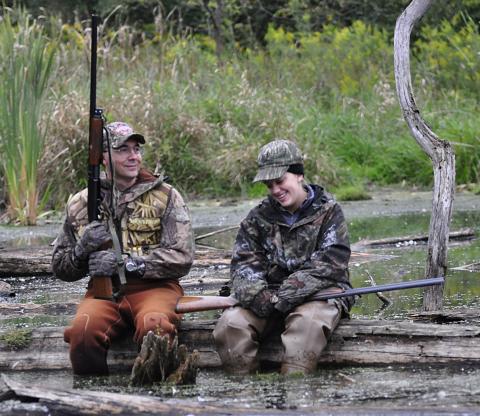Lethal Elimination of Canada Geese in Agricultural Areas
Agricultural damage management permits
In order to prevent current and future agriculture depredation from occurring, Connecticut has implemented a management program that allows persons actively involved in commercial agriculture to conduct lethal resident (non-migratory) Canada goose damage management actions. These management actions include the destruction of resident Canada goose nests and eggs and the lethal removal of resident Canada geese. The Connecticut Department of Energy and Environmental Protection (DEEP) has developed a permitting system to administer this resident Canada goose management program. Upon receipt and review of a completed permit application and signatory page, permits will be issued to affected agriculture producers.




